Women of the Village - Akshata
The resilience, patience and bravery of the women from the Indian villages. #1
“Did you eat anything today?”, she asked as she walked into the front-yard.
From the looks of it, she had walked hurriedly to check up on me.
I was visiting the village to keep an eye out on the farm in my grandparents absence. Grandpa had to be rushed to a hospital in Ratnagiri - the skin on his legs was peeling off - to a point that it started bleeding in the midnight. Grandma had asked me to stay in the village. “The farm is open and the bananas are out. There are many monkeys and water buffaloes who infiltrate in our absence. Someone should be guarding it”, she had said on the phone.
“No. But I don’t think I am that hungry”, I replied. I had a couple of coffees and some biscuits to keep me going.
Without asking, she rushed into the kitchen, brought out some rice flour and sat next to the stove. In minutes she had the fire burning and smoke from that fire had filled over the padvi (backyard).
“You should not keep your stomach empty or else crows will start dancing in your stomach”, she said while gently mixing the rice flour with some water.
“Why didn’t you remind me earlier? I got a call from your grandma. She said you hadn’t eaten anything”, Akshata was now flattening the already ready dough into a bhakri ( a circular shaped roti or bread).
Akshata. In marathi it means grains of uncooked rice that are used to shower on a newly wed couple. Akshata is also sprinkled during other auspicious ceremonies. Symbolically, Akshata represents prosperity, fertility and bounty. When Akshata is offered to a deity, it is believed to be the finest offering that a devotee can make. It is believed to be equal to offering clothes, jewellery, food, or any other offering.
Akshata grew up in a neighbouring village, only a few miles away from Narvan. Her father was a farmer and a daily wage worker, working in neighbouring farms. Her mom, a house-help and a farmer herself. It was a tiny, sparsely populated community consisting of only a few houses. Having studied till fourth grade, her family decided that it was better to teach her house work and cooking and hence dropped her out of school. There wasn’t any resistance from her part. Not knowing any better herself, she decided to go along with her parents decision.
Years went past as she helped her dad in the fields and her mom in the kitchen. Her brother got to study further. He went all the way to the 8th grade, which was a sense of great achievement in the family.
Schools were a new phenomena in the Indian villages. Although upper-caste and other wealthy people from the relatively bigger cities found education, the lower-caste (to which Akshata belonged) hardly found any. Like many others in the community, she too passed her younger days alongside other girls, playing outdoor games and wandering around the flat lands herding the cattle. It was a disciplined repetition of a few tasks and that was enough to keep them occupied.
I have known her since I was a child. She is as much a family member as is Sanju. Every morning, when I would wake up late, I’d get some scolding from Akshata. Now, I don’t call her Akshata, but Akshata kaku (kaku as in aunty). Her voice was louder than a loudspeaker. She would squeak while she spoke, thus it wasn’t a surprise when she got a nickname from Sanju dada - “faatlela speaker” (meaning a cracked speaker). But then, she also had a hearing problem. Whenever my granny called her, she wouldn’t reply, thus getting another nick-name, “bhairi” - as in ‘deaf’. It never stops to amuse me how one person could have such terribly contrasting nicknames.
“My brother-in-law is back. He has asked us to leave the house”, she spoke after brief pause.
“We have tried explaining him”, she continued.
“You can’t throw us out, we said. Aren’t we equal shareholders in this property? We have paid you equally in the building of this house, but he tends to dismiss us. God will take care of him. I don’t think he (God) is that cruel to snatch an honest man’s bread.” Her face was still - as calm as before - I was waiting for her to explain more.
During her late teen years, Akshata was married off to a guy from our village. The guy was equally uneducated and they soon went off to working in the fields. After the initial years of finding a suitable job, he too was laid off and thus Akshata was in a need to get some housework. She was pregnant - a girl was on the way and to be able to look after her, meant having some income. Ever since then - and it has been almost 25 years since she started housework - she has worked on and off in many households before finally finding my grandma.
My grandparents migrated to the village in the early 2000’s. They were in search of people to work on the mango/banana plantation and thus many people from the surrounding communities started coming in to work. This wasn’t a fixed job in any sense. Whenever someone was in need of money, they would come up to my grandpa and ask for a day’s or a week’s work. Grandpa and grandma, having been retired from a government job, were in a good enough position to hire people for the farm-work. Their pension paid off for this excess work. Soon enough, Akshata was a household name for us. She would come around after making food for her family. As soon as Sanju dada saw her, walking in a slow pace, looking around the mound, he would give grandma a hint. He’d say, “Akshatam Samarpayami”, in a loud tone, making sure that grandma hears it. This is an old sanskrit term that is used during the end of the wedding ceremony. It is a call for everyone to throw the uncooked rice (akshata) towards the bride and groom, thus concluding the wedding.
For the past few months, Akshata has been fighting a downhill battle to retain her house. A family of 13 people, after including her brother-in-law and sister-in-law’s family, own this tiny piece of land, upon which this newly built house stands. After years of saving money and paying her brother-in-law in building of this collective family house, she and her husband were ousted. Forced to live in a small crude outdoor shelter, next to the toilet, she is struggling to find her way out. Her husband, who is in no position to stand up to his brother, who retired from the Indian Army (thus gaining a higher stature and respect in the village), all burden lies on her.
“What do you think Ashu? Will we get back our house?”, she asked as she looked at me with motherly kindness.
The fire was burning. The smaller sticks in the furnace crackled as the burning wood echoed through the stillness of that moment. The acrid taste of smoke hung in the air, making each breath sharp and bitter. A soft flame danced and flickered, painting my face with an orange glow. I watched the bhakri as she held it with her fingers and circled it around on the stove. After a few spins, a few pats, I could see the excess air escaping from the sides of the bhakri. She picked that flaming hot bhakri and dropped it in my plate.
This is a general rule, whenever I am in the village, I try to meet each and every villager who has or had any remote connection with us. Sometimes I wander off to random communities and end up staying there for a couple of hours, sipping tea and talking about their life and listening to stories from the village. I visit Akshata’s house often. She built it alongside her husband and some members from the community. For me this was normal. We had a somewhat similar house to begin with. But since this feud with her brother-in-law, this shelter has become somewhat of a burden. It feels as if she was betrayed and hence this house, which was a temporary shelter, suddenly feels like hell. “The walls come to bite me”, she says.
One day I was walking past her house when I saw her with a broom in the backyard. I instantly changed directions, went by her house and sat by the door.
“Can I get a cup of tea?”, I asked.
“Don’t you sit on the floor. Here… here.. take this chair”, her face was filled with shame.
“Only if we had our portion of the house, you would have never had to sit on the floor like this.”
Her eyes were running all over the place, looking at the mud walls that had cowdung as a DIY paint; watching the small table fan on the corner - which was old and making sound as it rotated; the bent roof which needed urgent repair. Even though I was comfortable in being in her humble abode, I realised quite quickly that she wasn’t. After the initial pushback, she was much more relaxed after watching me settle down.
Together, we made tea that day. We sat on the floor, discussed life and talked about many seen and unforeseen events - like the time when she had decided to move altogether to Bombay..
I picked some pickle from the kitchen and tore that bhakri to make it cool down faster. Akshata kaku was busy making another one. I settled next to her, on the floor.
“Why would you give away hope?”, I asked after taking a few bites.
“Maybe you will find a solution to this. Who knows! …and if nothing works out, you can lodge a formal complaint. You have the right to.”, I knew all of that fell on deaf ears. She didn’t respond.
I will continue this story in a few days. There’s lots to be spoken about the incredible patience and bravery women show - even in the face of adversity.
I will be off doing vipassana for the next 10 days. Not having a phone or any internet connection. This is what I wanted for a long time. Some time to introspect and focus on some inner healing. I will see you all in 10 days, writing more intently from the mountains in North India. Cheerio!





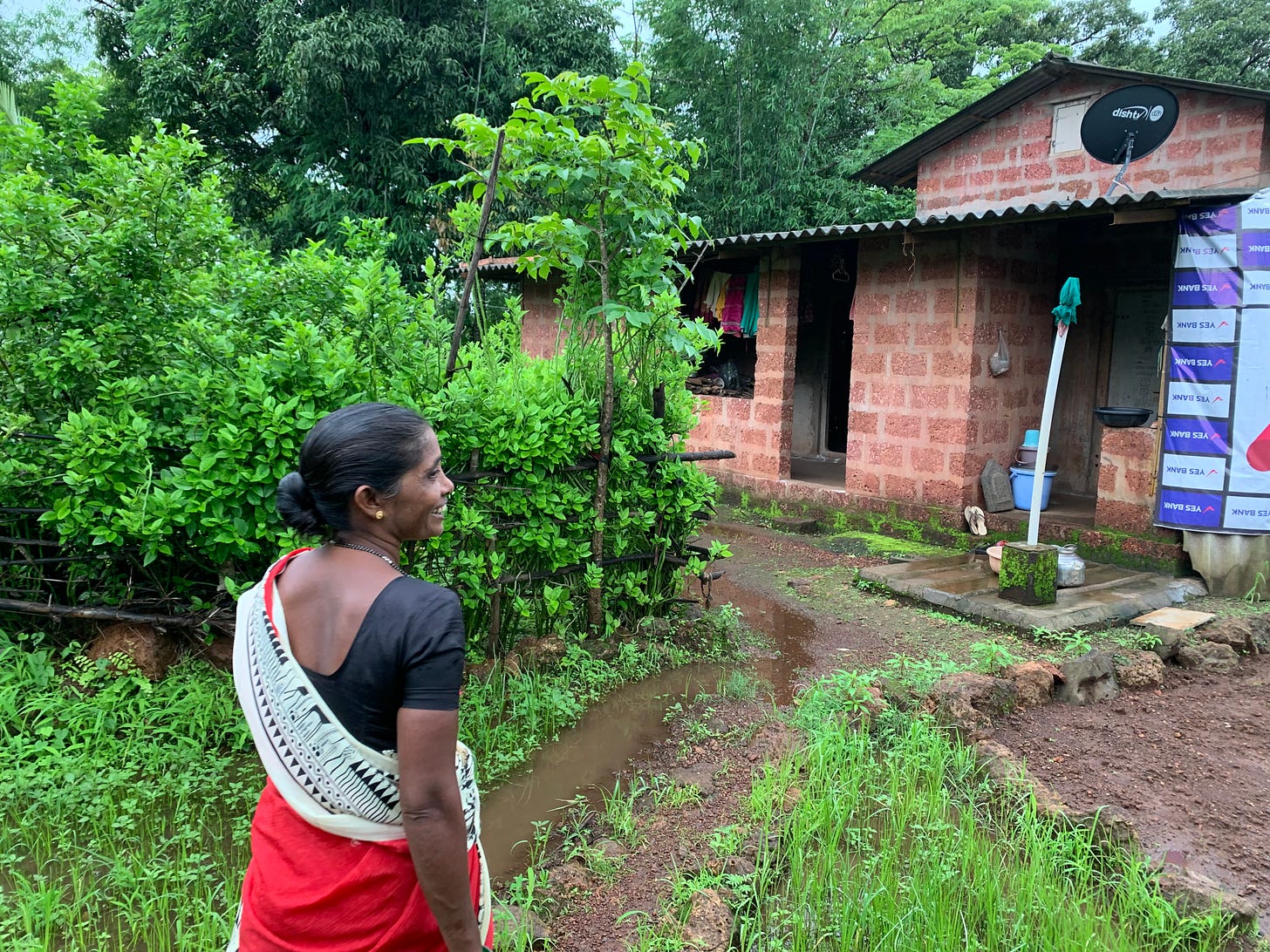
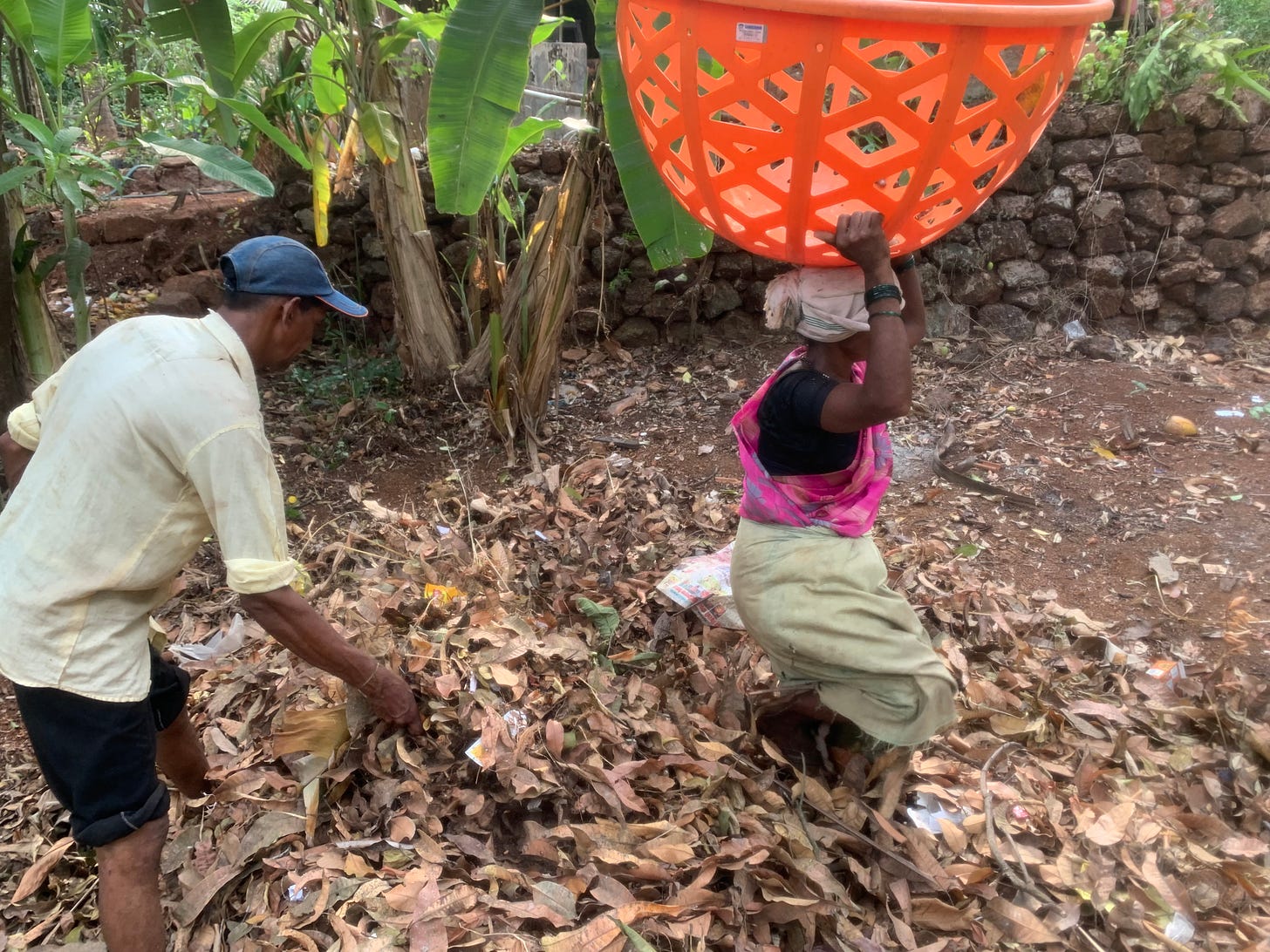
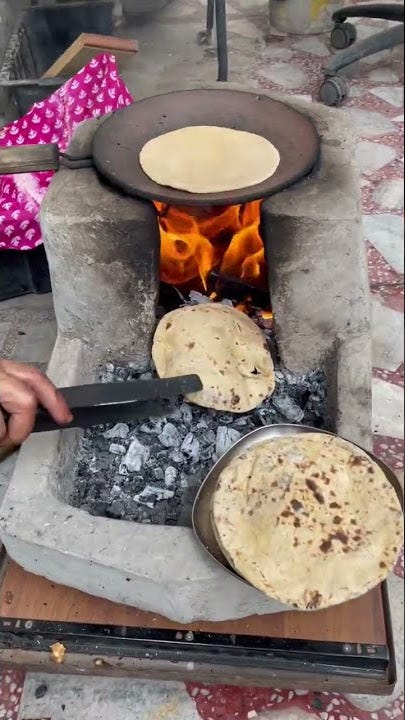
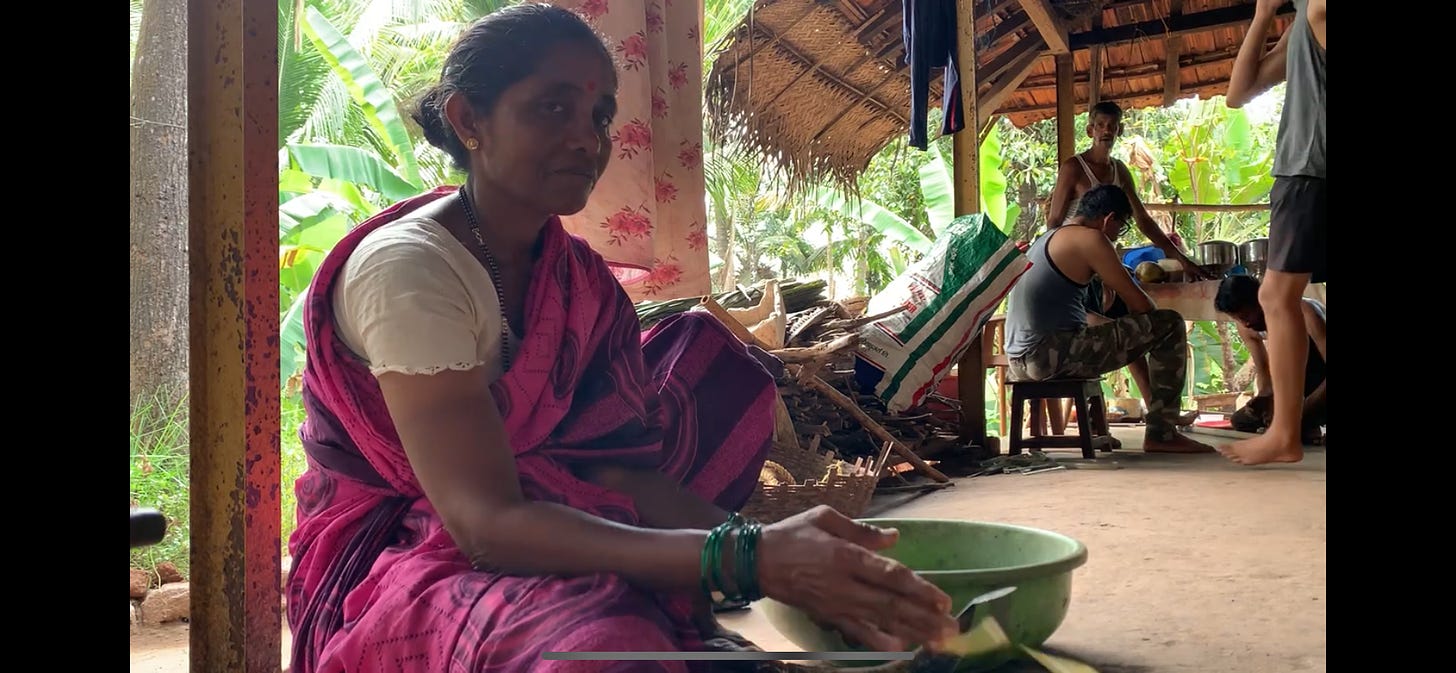
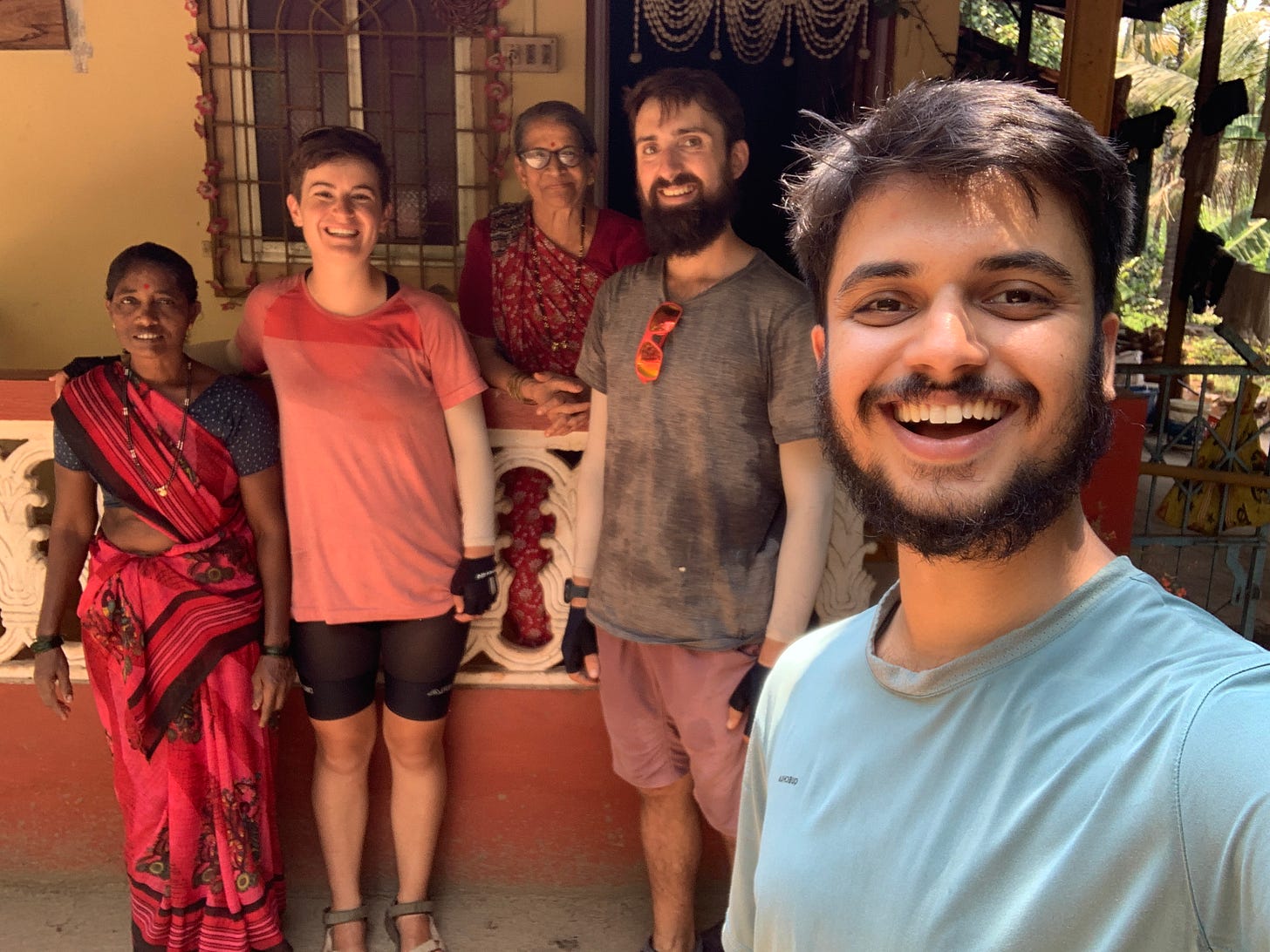
I love the way you have put her story across. Like life. Slowly. With pauses along the way.
This story is very touching. I so appreciate the insight into village life in India. I eagerly await to hear about your mountain retreat experience.